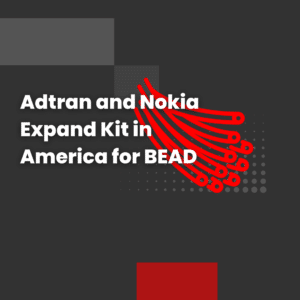UK-based telco Vodafone wants to offer customers a superior streaming experience. To do this, it has partnered with Cisco and Qwilt. These are two companies that can provide Vodafone with the resources for this edge-based content delivery network. (CDN) solution. What this will do is enable Vodafone to cache video content and applications closer to end users, making for a much faster and more responsive service. This will benefit a variety of people, including those such as content owners and app developers too. This is due to the service’s high-quality access to millions of both fixed and mobile broadband customers.
The solution is a combination of both Cisco and Qwilt’s services. It puts together both Qwilt’s Open Edge platform, and Cisco’s edge infrastructure, and is delivered as a service. This prevents the upgrade from moving the needle on Vodafone’s capex, which might keep people a little happier. The service is based on the Streaming Video Technology Alliance (SVTA)’s Open Caching standard, a standard to unify multiple content caches into one large, easy-to-manage CDN.
Qwilt and Cisco are by no means strangers, having been working on edge-based content delivery for years. Ex-Cisco and Juniper employees founded Qwilt, and Cisco Investments actively hold a stake in the company.
Vodafone’s solution was successfully trialled in Italy, and is now looking to rollout in seven countries across Europe and Africa. The deployment will most likely ramp up as Qwilt and Cisco confirm partnerships with other operators, then helping them build. Qwilt and Cisco’s goal is to build the world’s largest federated CDN, a goal that could be very possible.
”By harnessing the power of Open Calling, Vodafone is using its capabilities and position as a significant network operator to take an active role in effective content delivery, and to expand opportunities to monetise this value chain while enabling the next generation of content experiences across its markets,” said Alon Maor, Qwilt CEO, in a statement last Tuesday.
”This deployment significantly expands our global, all-edge delivery network, bringing us one step closer to our goal of reaching all consumers around the globe with the high-quality digital experiences they need and expect,” he added.
CDNs are nothing new and have been around for years. Their relevancy stands however, with video’s share of IP traffic continuing to grow by the year.
As stated in network management specialist Sandvine’s most recent Global Internet Phenomena report, online video usage grew by 24% last year. As well as this, video now accounts for a huge 65% of all Internet traffic.
Another note the report made was that four of the five biggest generators of downstream data traffic are video apps. They are Netflix, YouTube, Disney+ and TikTok. As well as this, Sandvine argues that video can no longer be considered a standalone category. This is because it has become an integral part of almost every online application, including social networking, gaming, collaboration and conferencing.
As a result of this, network operators are under pressure to deliver the best video experience to customers. This is where CDNs come in, and where their place in the market stands.



